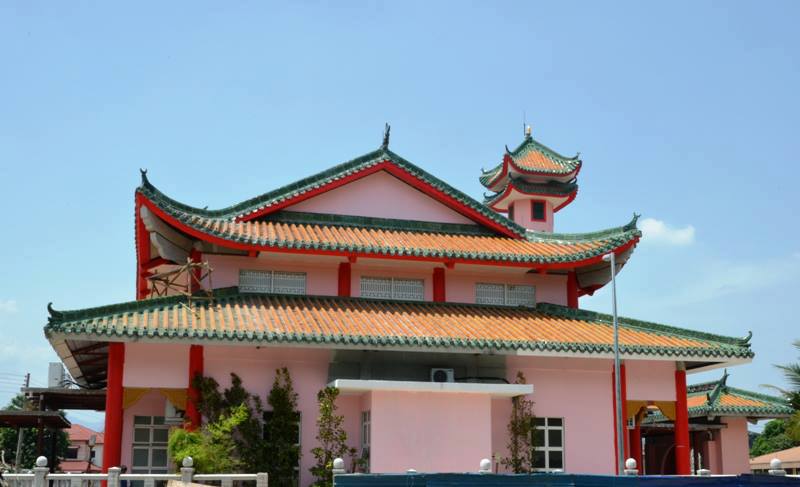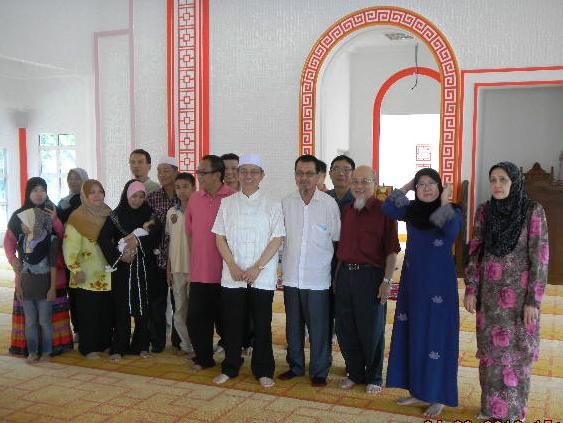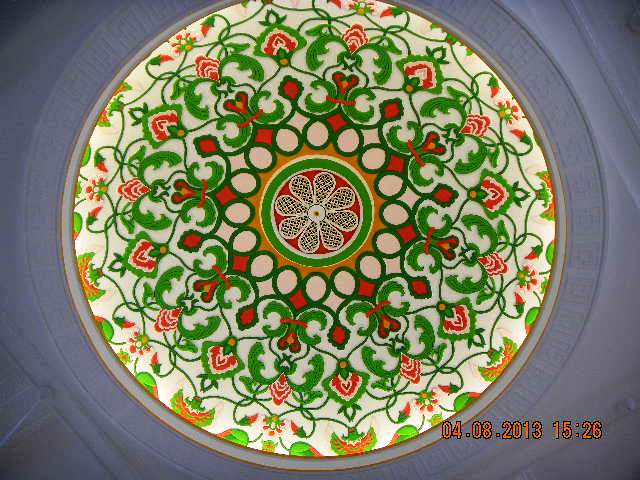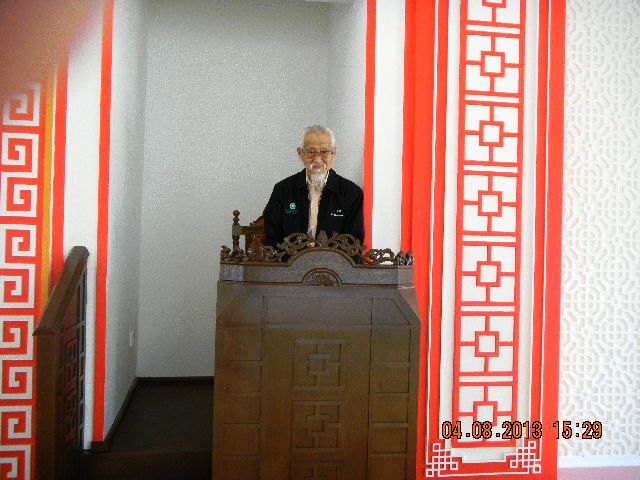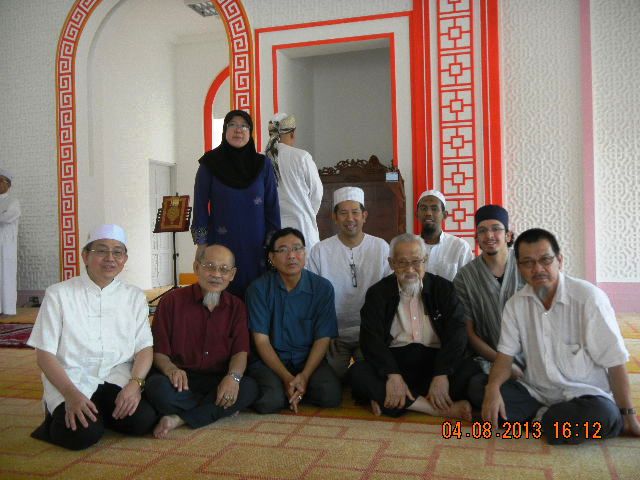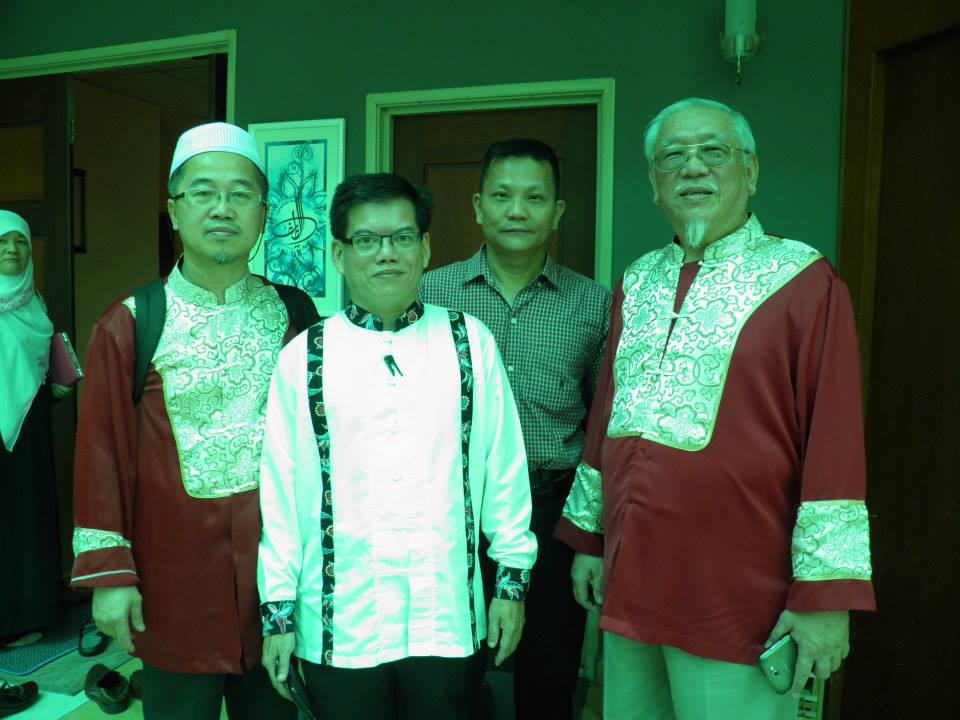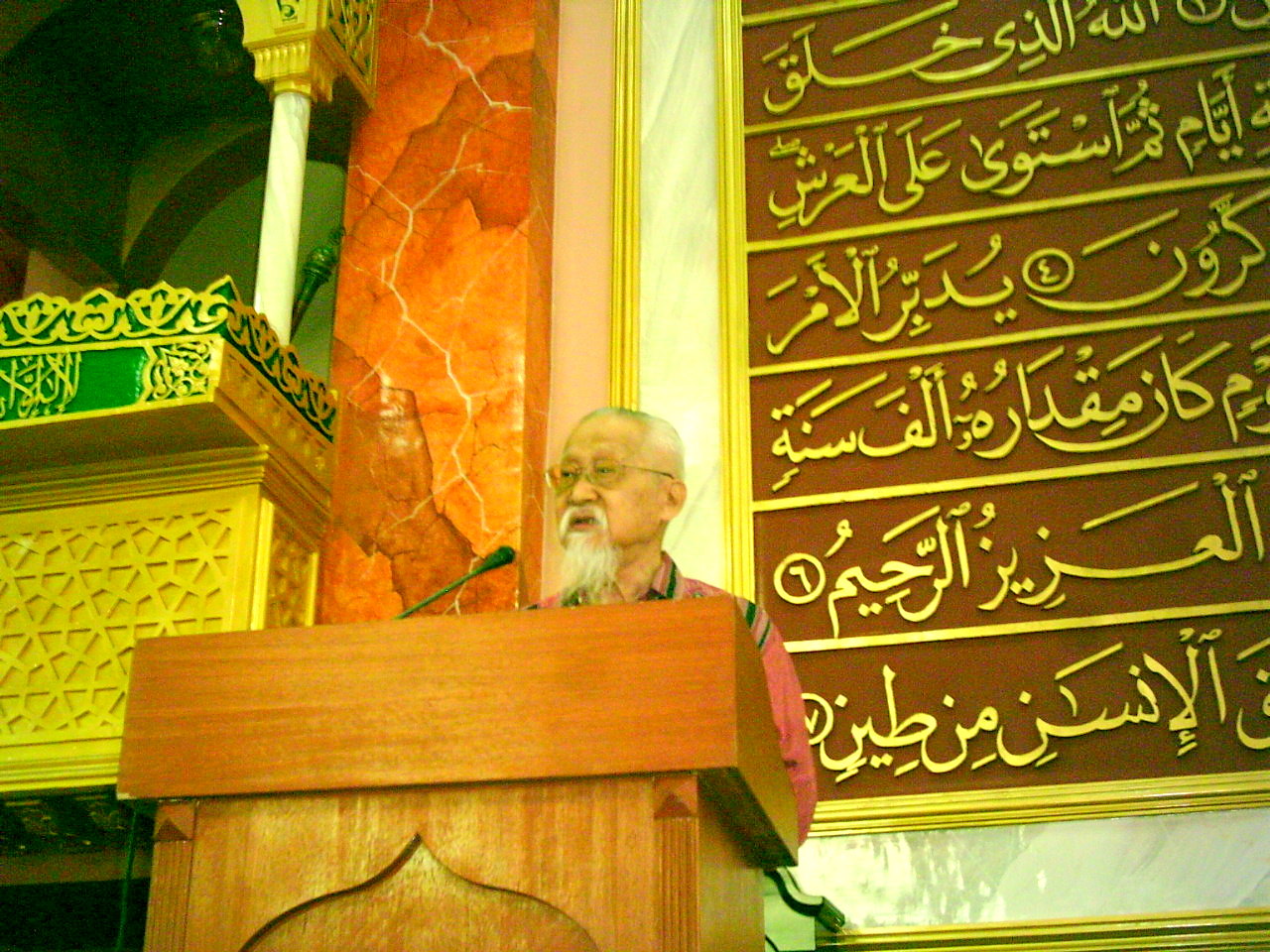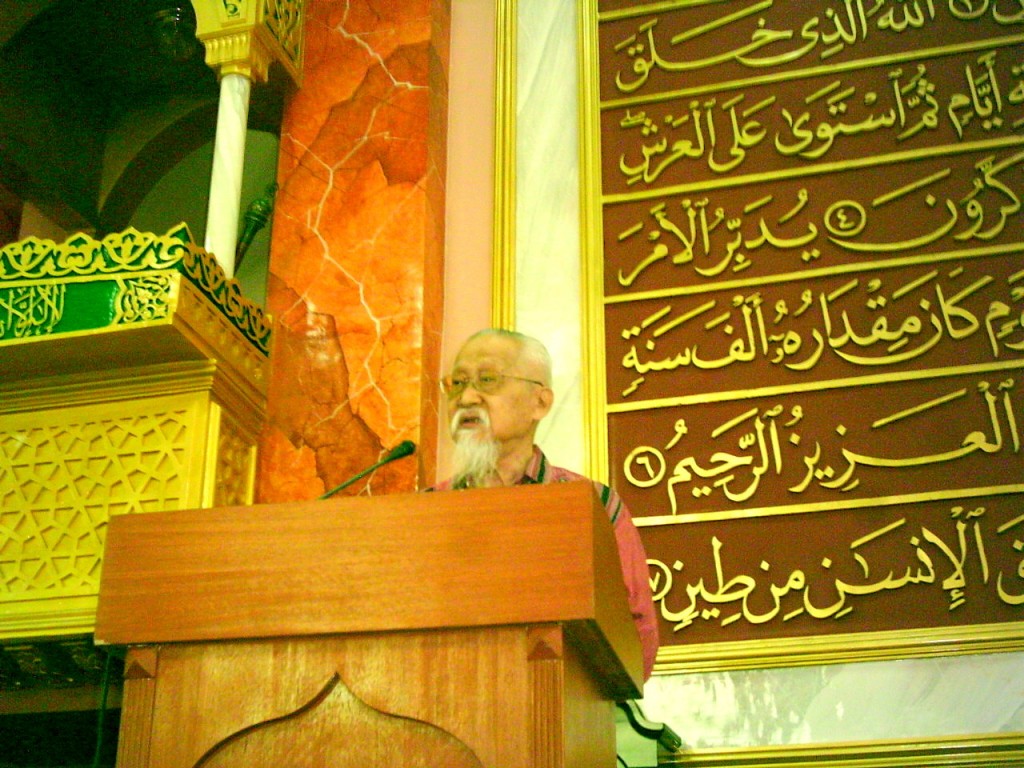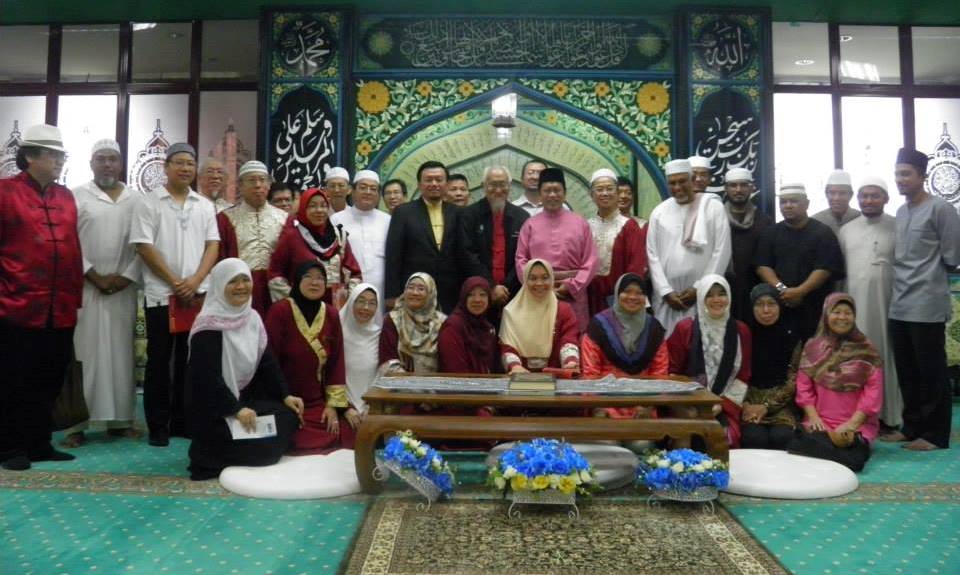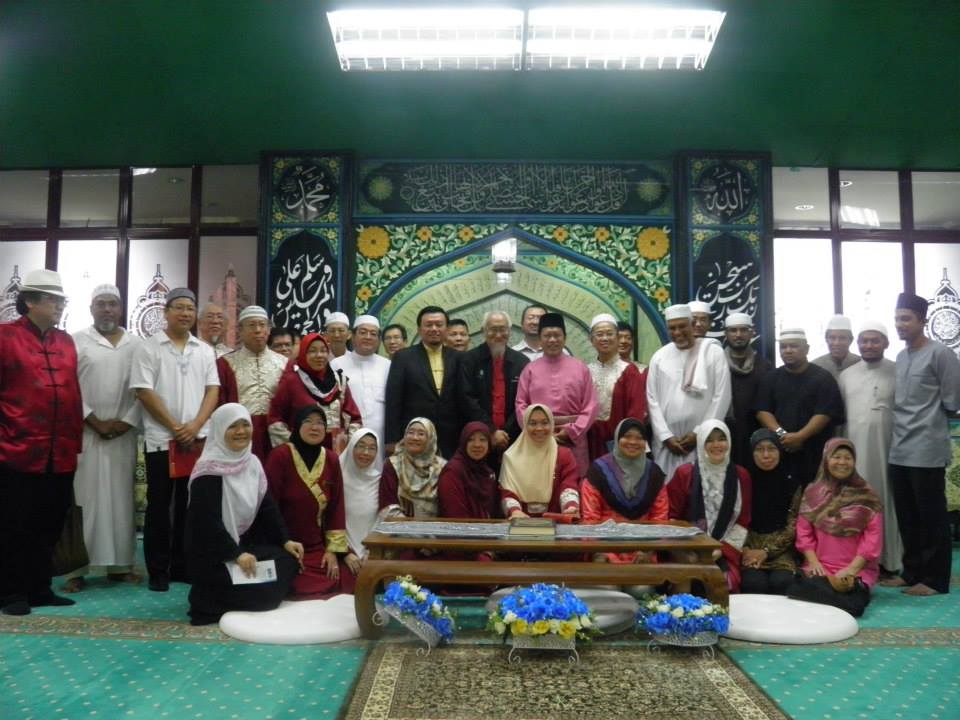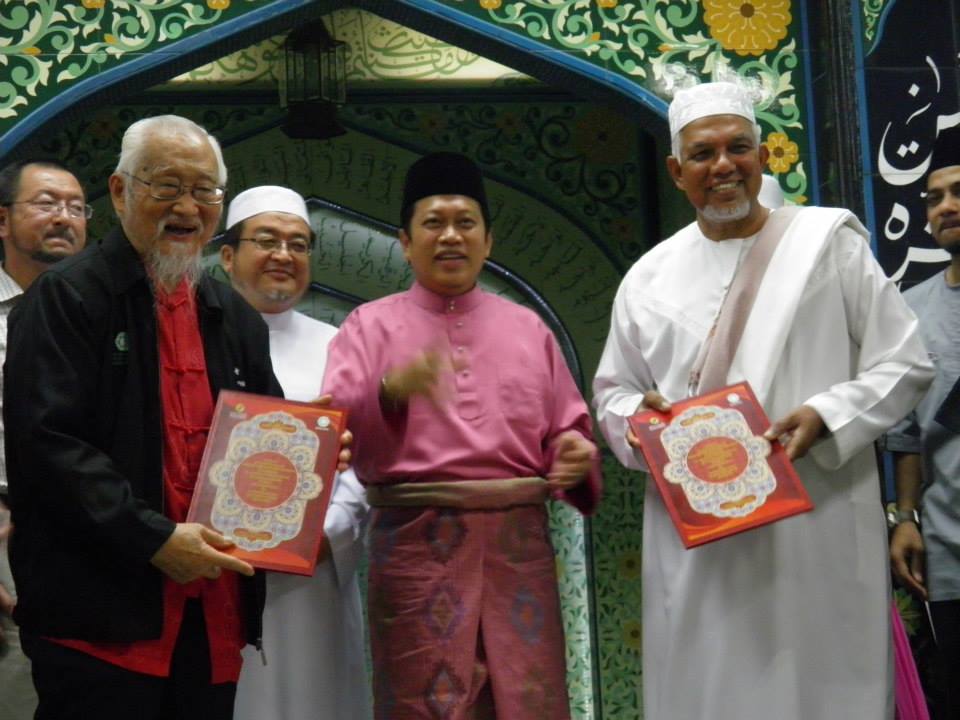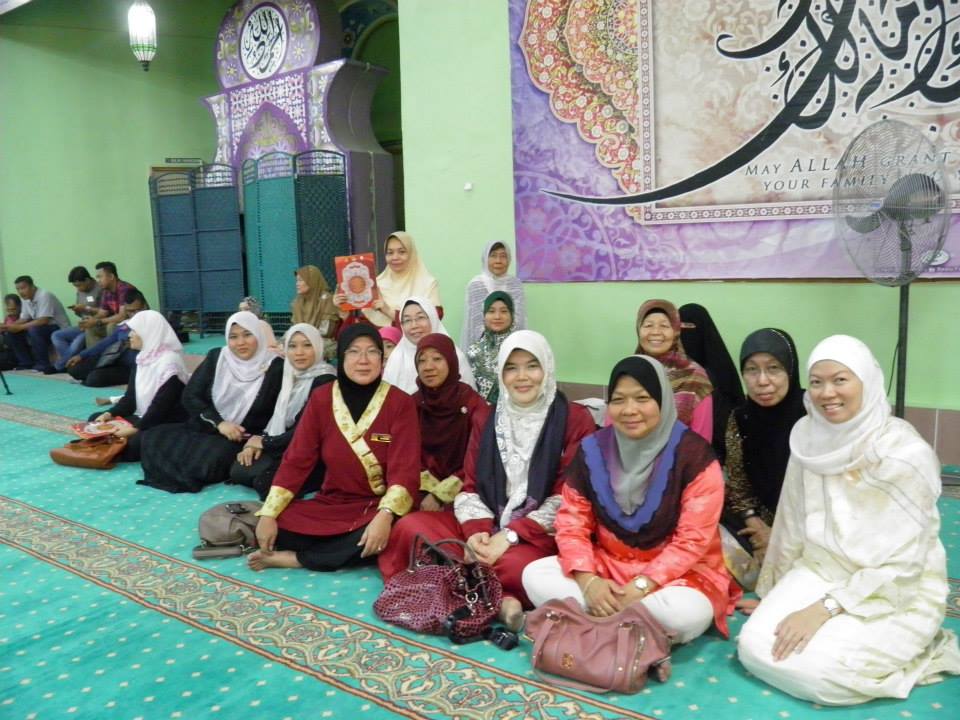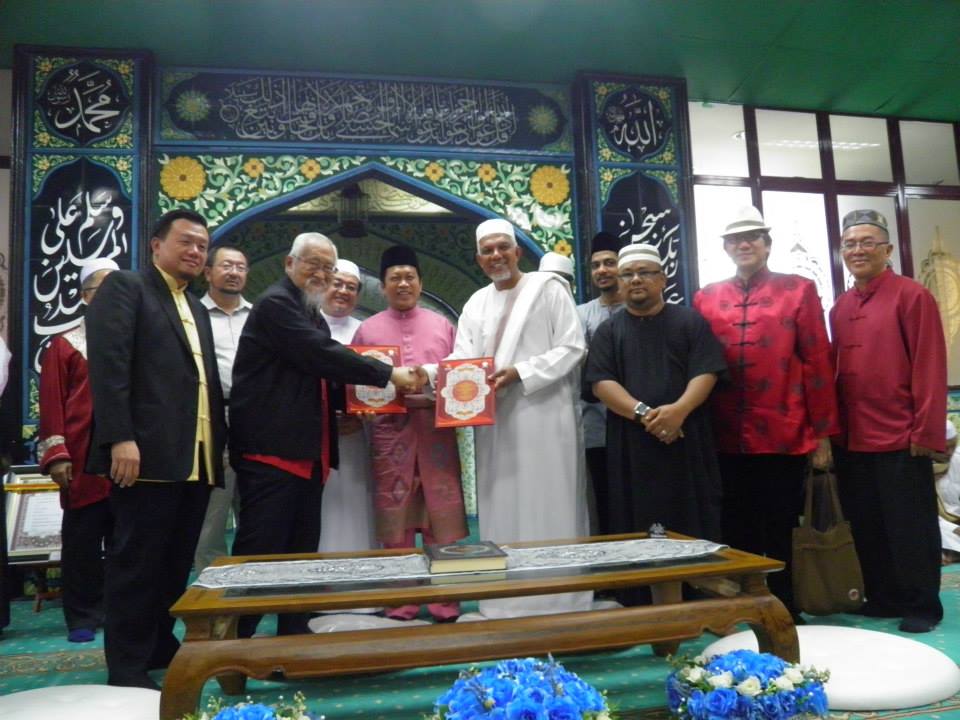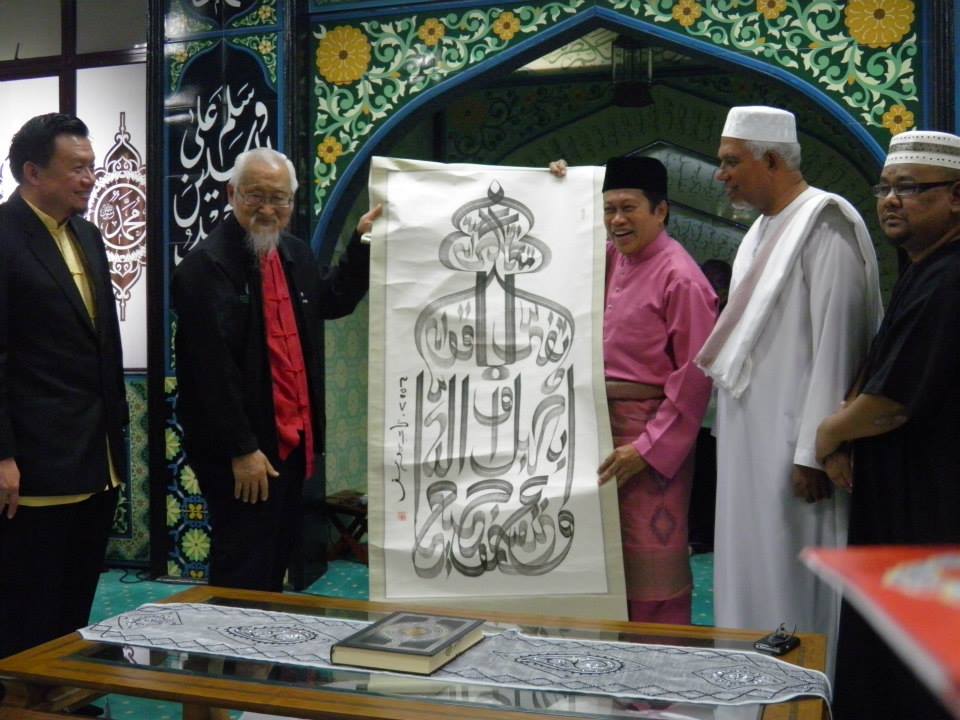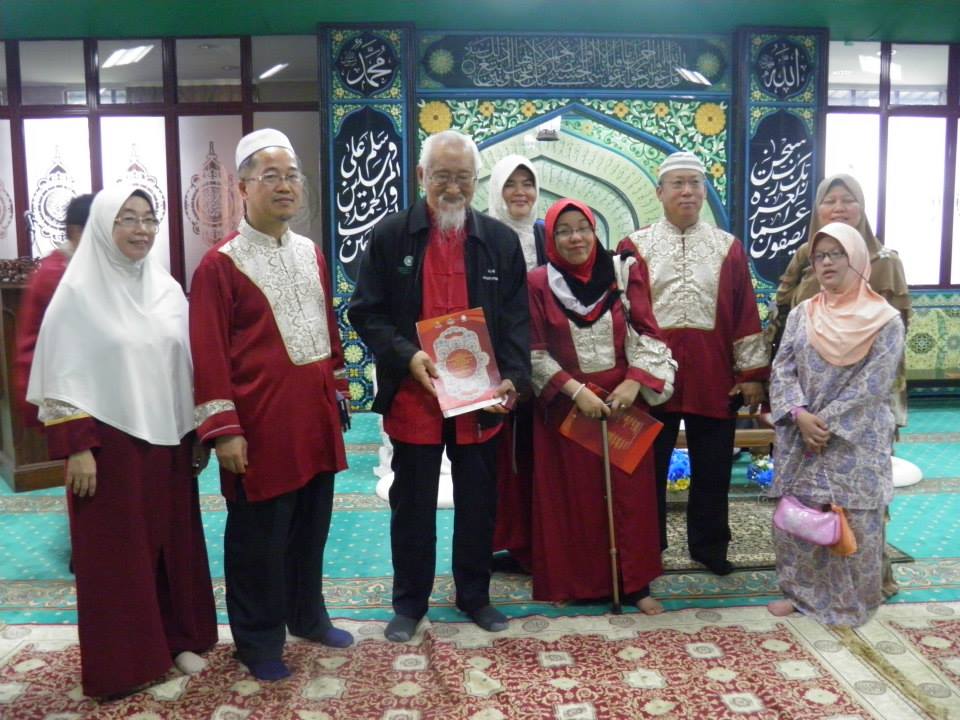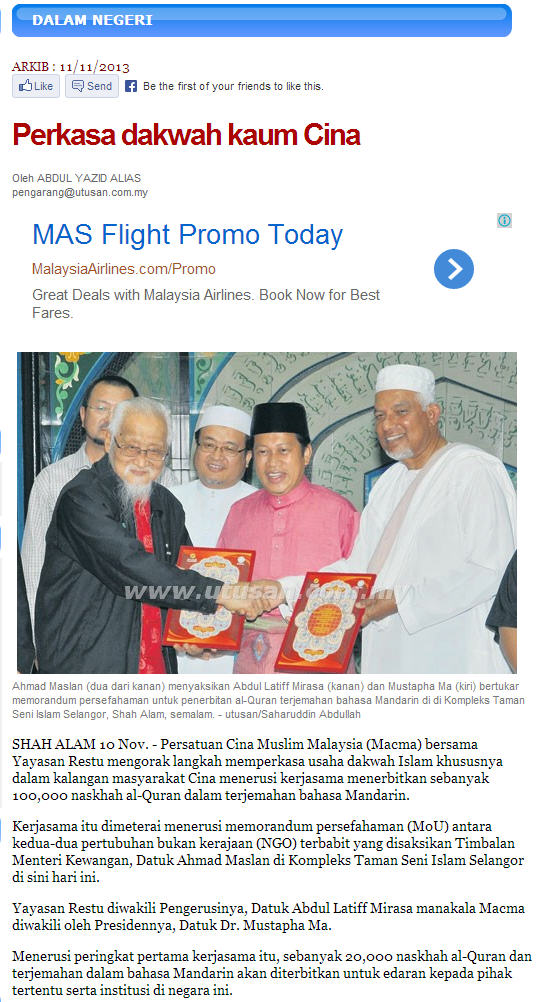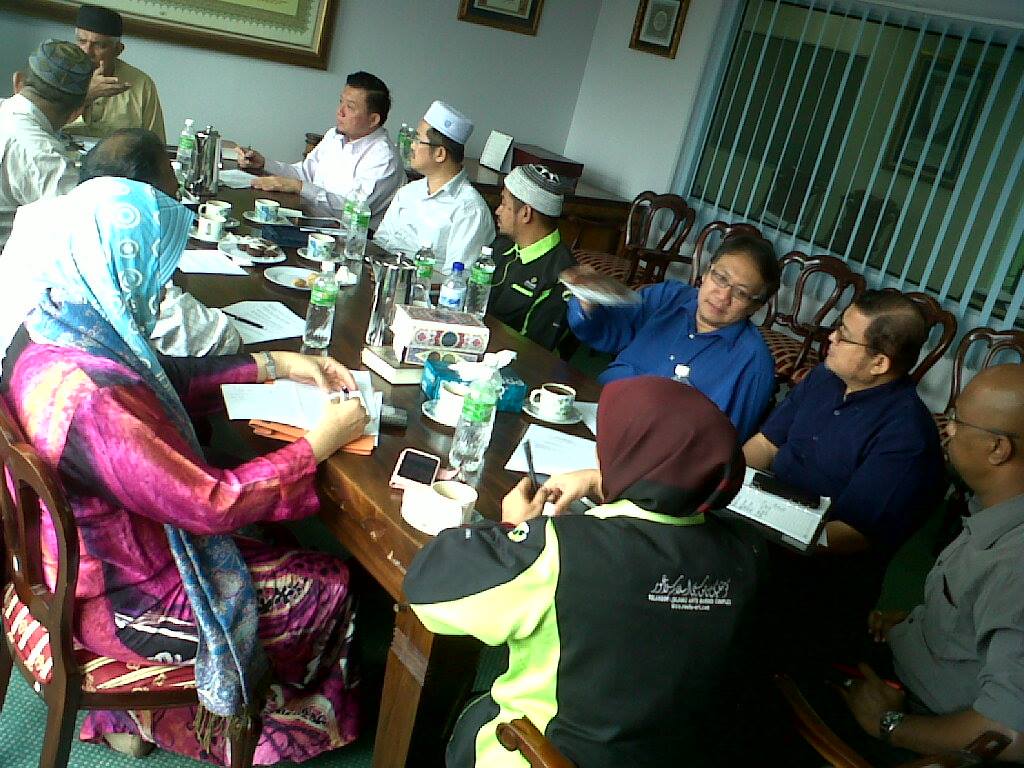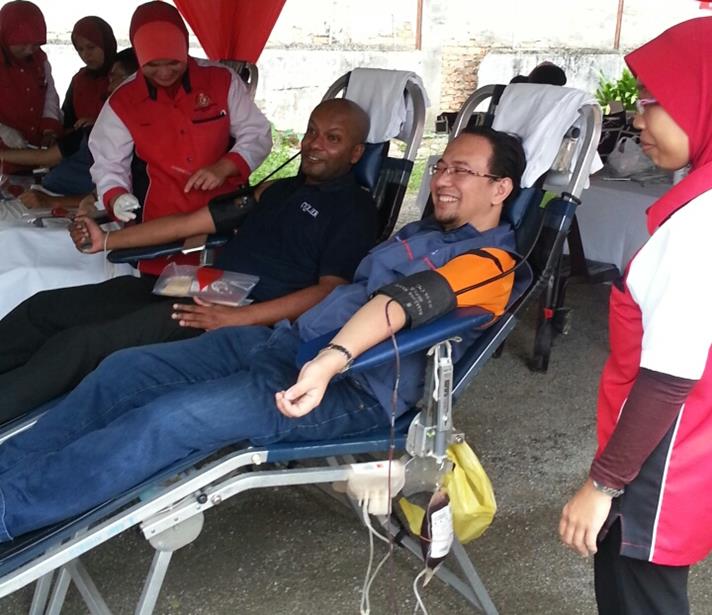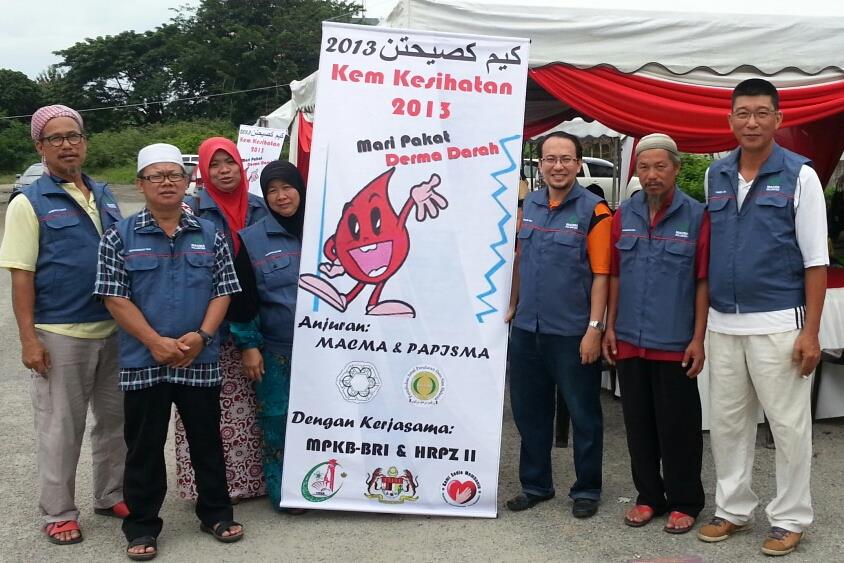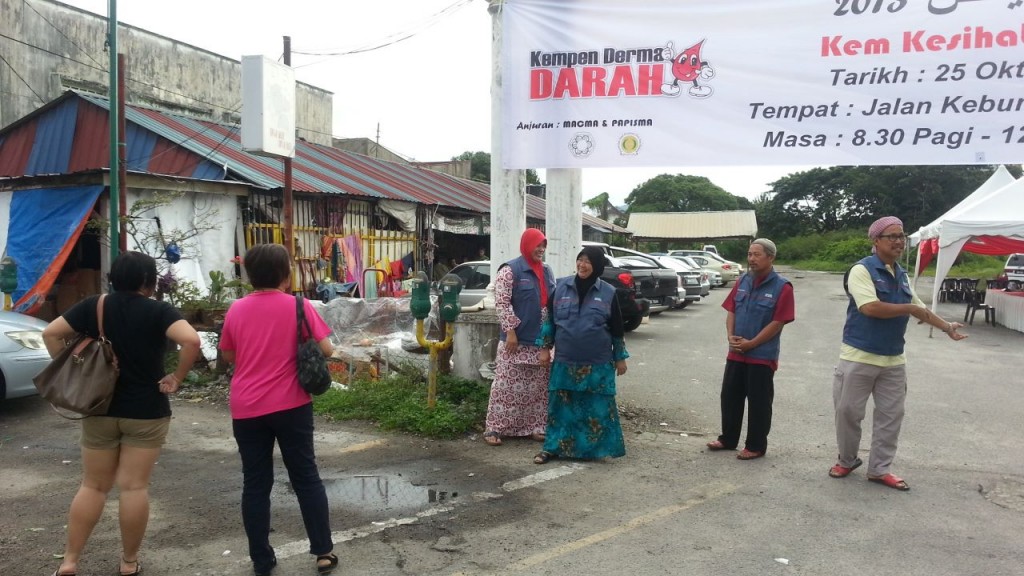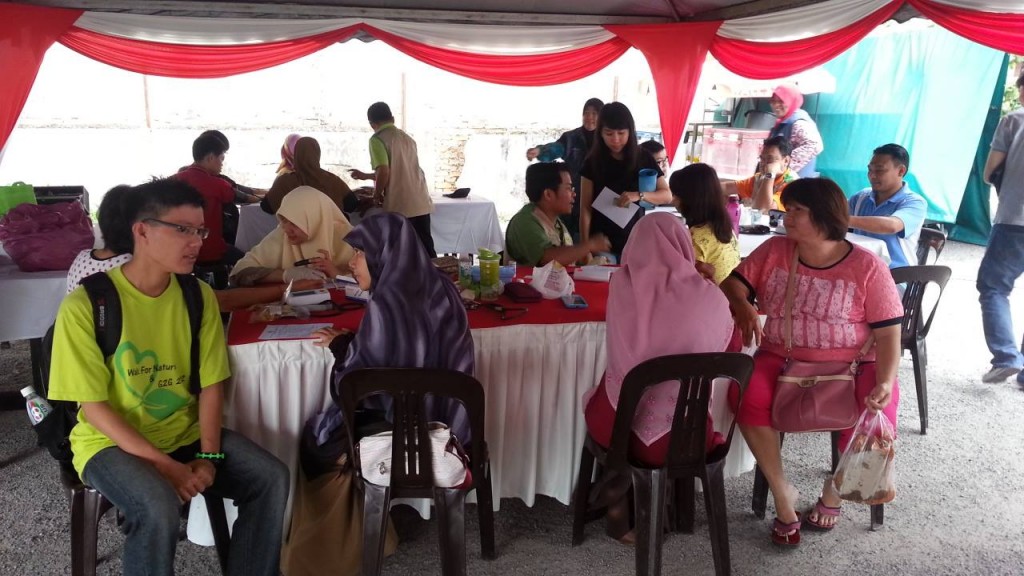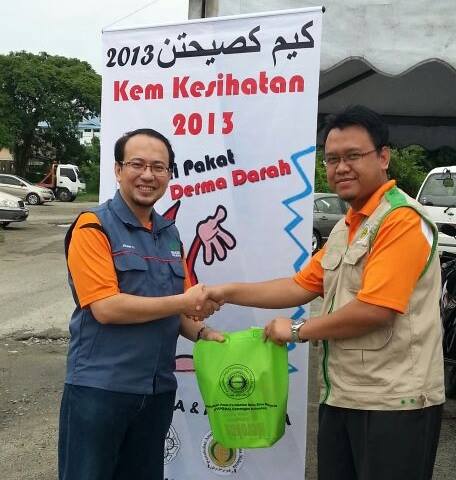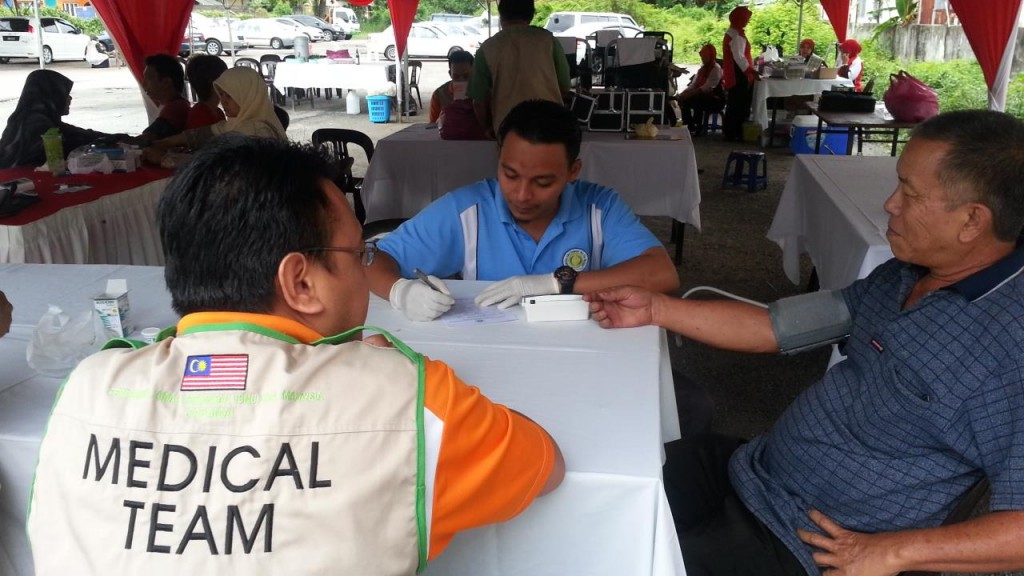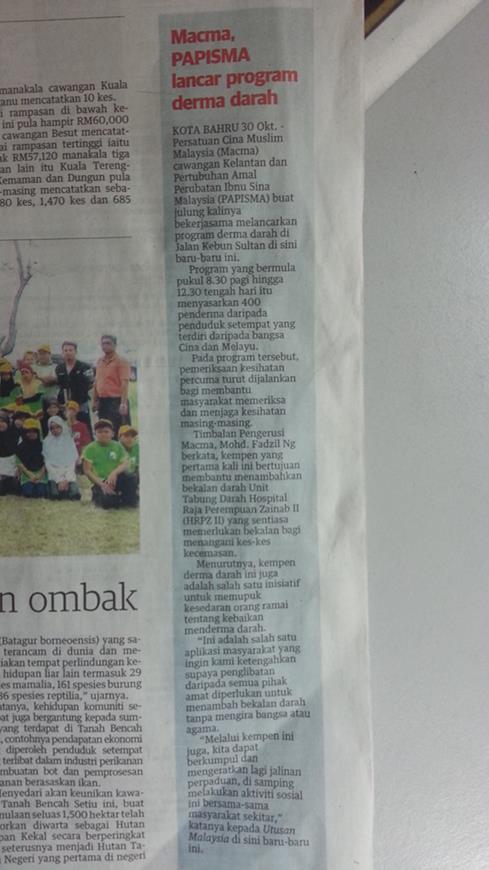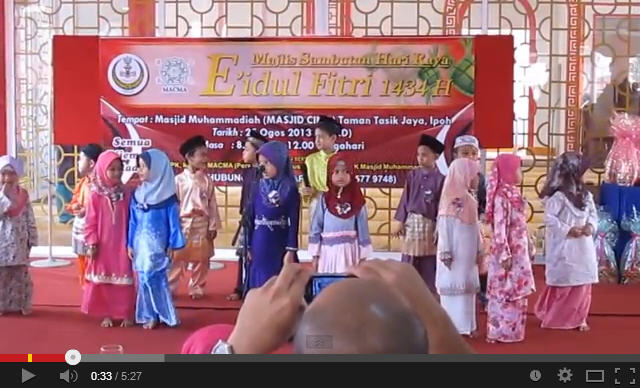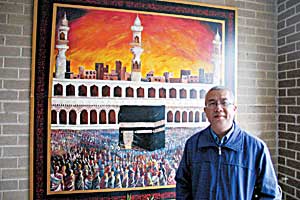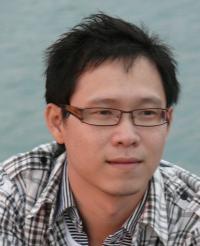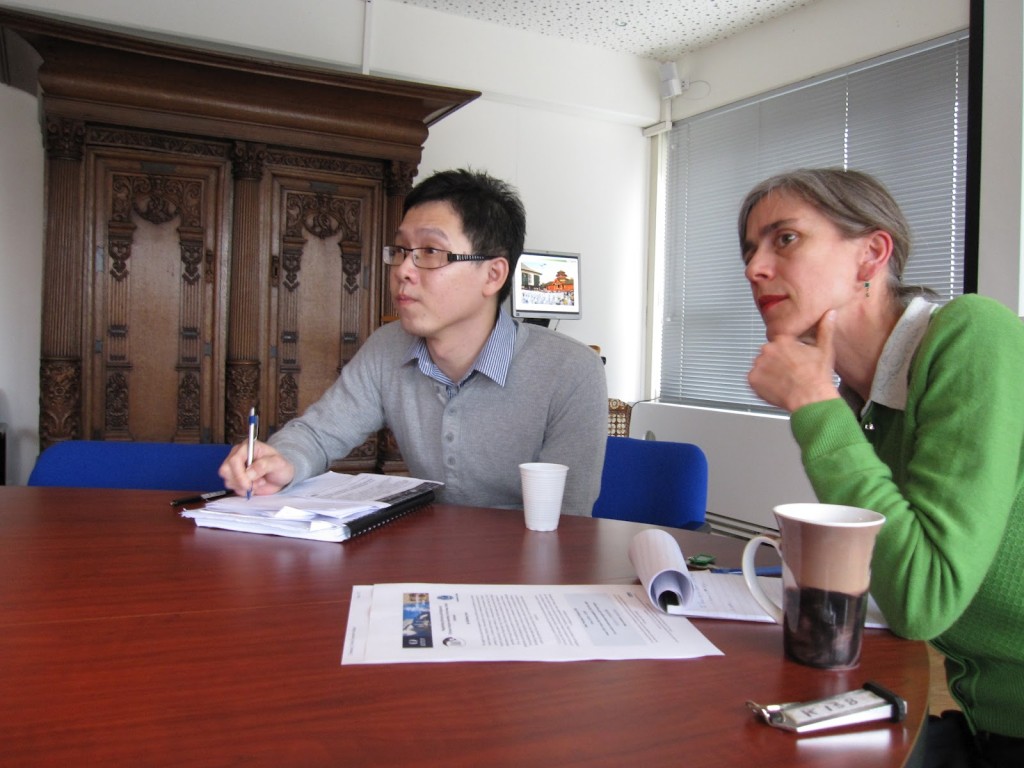
Dr Hew Wai Weng (author) sitting next to Marieke Bloemberg at the Leiden University, The Netherlands
Early this year, I attended a Chinese New Year open house, organised jointly by the Hidayah Center (a dakwah [preaching] institution under IKRAM, a Muslim organisation) and the Malaysian Chinese Muslim Association (MACMA), with sponsorship from the Islamic Council of Selangor (MAIS, Majlis Agama Islam Selangor) and Mohd Chan Restaurant. Alongside a small exhibition about Islam in Mandarin and English, there were various cultural activities during the open house, such as Chinese traditional music performance, lion dances and Chinese calligraphy competition.
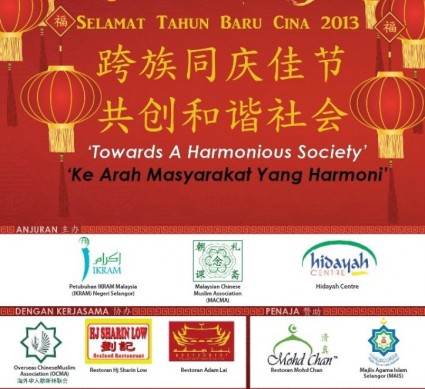
Indeed, in the last few years, as a way of disseminating Islamic message among non-Muslim Chinese, there is a growing trend of accommodating Chinese cultural elements in the Islamic preaching in Malaysia. Chinese-style mosques, Chinese Muslim preachers, Chinese halal restaurants and Chinese New Year celebrations are among the creative forms to promote the universality of Islam and to show that ‘there can be a Chinese way of being Muslim’.
Chinese Muslims are minorities in Malaysia, in which only 1 percent of ethnic Chinese are Muslims. In the past, ethnic Chinese who became Muslims were assumed to lose their Chinese cultural identity and become ‘Malay’. The recent emergence of Chinese Muslim cultural identities, which combine both Chinese cultural symbols and Islamic messages have challenged this widely held perception that ‘Chineseness’ and Islam are incompatible.
Unlike conventional dakwah activities, which aim at strengthening the faith of Muslims, Chinese Muslims dakwah movements aim to universalise Islam and invite non-Muslims to get closer to the Islamic faith. Differentiating Chinese ‘cultural’ traditions (budaya) from religious rituals (agama), Chinese Muslim leaders argue that Chinese culture does not contradict with Islamic principles. Instead, it can facilitate the spread of Islamic messages, which I call here ‘dakwah pendekatan budaya’ (preaching by using [Chinese] culture) or ‘cultural dakwah’.
Statements such as, ‘Chinese New Year does not belong to any religion and that it is a cultural event shared by all Chinese’ are commonly used by Chinese Muslims to justify their celebrations. A common belief in this school of thought is that many Chinese in Malaysia hesitate to become Muslim, because they are afraid of losing their Chinese cultural identity after conversion to Islam. By holding public Chinese New Year Celebrations, this group would like to diminish such worry, with the hope that more Chinese will convert to Islam, or at least get closer to Islam.
Many Muslim leaders endorse these celebrations, as long as such activities do not contain non-Islamic elements, such as deity worship and the consumption of non-halal food, for example pork and alcohol. They see Chinese New Year activities such as wearing red, giving ang pao and lion dance as cultural practices that do not contradict Islamic teachings. They also think get-together events, such as mutual visits, reunion dinners and open houses, fit well with Islamic values, and view these activities as promoting ‘silaturahim’ (maintaining good relationships).
Since 2010, working together with the Malaysian Chinese Muslim Association (MACMA), IKRAM has held various Chinese New Year Open House celebrations. IKRAM is a Muslim organisation in Malaysia, consisting primarily of well-educated, urban-based, middle-class and reformist-minded Malay Muslims. In 2013, the Selangor branch of IKRAM organised Chinese New Year celebrations in nine locations in Selangor: eight small open houses at different districts, all held at Chinese halal restaurants; and a grand one in a Chinese school. Remarkably, one of the key sponsors was the state-controlled Islamic Council of Selangor (MAIS, Majlis Agama Islam Selangor). I joined some of these celebrations, which were well attended by Malay and Chinese Muslims, as well as non-Muslim Chinese.
Chinese cultural elements and Islamic messages are strategically combined in such events. Let me describe one of these celebrations in detail. On 24th February 2013, the 15th day of Chinese New Year, more than one thousand people attended a grand Chinese New Year open house in the Chee Wen Chinese primary school in Subang Jaya. The organisers had chosen a Chinese school and not a mosque to hold this event, hoping that more Chinese would join without hesitation. Invited guest speakers included leaders from Chinese organisations, Islamic NGOS, and Hui Muslims working in Malaysia. There were three hosts for the event: one of them was of mixed Chinese-Malay parentage and the other two were Hui Muslim studying in Malaysia. Most of those involved in organising the event were – both Chinese and Malay Muslims – wore red. Halal Chinese dishes with a localised twist, including a 100-feet yee sang (a popular Chinese New Year dish in Malaysia) were served. The food was sponsored by Mohd Chan Restaurant, a Chinese halal restaurant.
Inside the hall, there were decorations of Chinese lanterns and Chinese calligraphy that read: ‘Allah is the Greatest’ and ‘Happy Chinese New Year’ in Mandarin. Various entertainment programs, including Chinese traditional music performance and lion dances were staged. There were also screening of videos, introducing Islamic teachings and sharing experiences of Chinese converts. MACMA Selangor also held a small exhibition about Islam in Mandarin and English. Qur’an, Islamic books and leaflets in Mandarin and English were available for free. Some volunteers also approached the non-Muslim Chinese who attended, asking their views on Islam and sharing the Islamic messages with them, in a subtle and indirect way.
The chairman of IKRAM Selangor Hassanuddin Mohd Yunus explains,
Islam is a universal religion. In the past, we have only conducted dakwah among Malay Muslims. This is our mistake. We have made Islam a Malay religion, which contradicts the universal value of Islam. We should share the beauty of Islam with ethnic Chinese, who are mostly non-Muslims. And the best way to spread Islamic messages to ethnic Chinese is by using cultural approaches. Chinese New Year is a cultural event, not a religious one. Therefore, we organise Chinese New Year open houses. We serve yee sang (a Chinese Malaysian dish). We give ang pao (red envelope with money). We want to show that Islam and Chinese culture are compatible. Masuk Islam itu bukan Masuk Melayu (convert to Islam is not equal to convert to ethnic Malay).’ (Interview, Hassanudin Yunus, 24 February 2013)
In Seremban (a small town, an hour-drive away from Kuala Lumpur), there was also a Chinese New Year dinner celebration inside the Al-Saadah Complex. The Seremban Al-Saadah Complex is a newly-completed Chinese-style mosque in Malaysia, initiated and sponsored by the Islamic Council of Negeri Sembilan (MAINS, Majlis Agama Islam Negeri Sembilan). Its architectural design was inspired by the Great Mosque of Xi An, in mainland China. Various Chinese features dominated both the exterior and interior design of the mosque complex, such as the Chinese-designed entrance gate, the Chinese garden, the courtyard and pavilion, the red pagoda-shaped minaret, red lanterns and Chinese calligraphy.
This mosque complex hosts various activities, such as religious talks, Mandarin classes, conversion ceremonies and cultural festivals. Remarkably, during the Idul Adha celebrations in 2011 and 2012, Chinese Muslim religious teachers presented their sermons in Mandarin (with translation in Malay on LCD screen) inside the mosque. Moreover, the mosque invited an Imam from mainland China to serve the mosque. The mosque committee is also planning to hold regular Friday sermons in Mandarin, beginning from the mid of 2013. If this plan comes true, the Al-Saadah complex might be the first mosque in post-independent Malaysia which conducts Friday sermons in Mandarin regularly.
In the past, it was quite difficult to imagine that a Muslim organisation would organise a Chinese New Year open house or an Islamic authority building a Chinese-style mosque simply because of the pervasive perception of Islam as the symbolic marker of Malay identity. Yet today, not only Chinese Muslims, but many Malay Muslims are enthusiastic in preaching Islam through the use of Chinese cultural symbols and practices.
What are the factors that have contributed to this emergence of cultural dakwah in contemporary Malaysia?
First, there is a growing expression of Chinese Muslim cultural identity among Chinese converts. In the past, many Chinese converted to Islam because of intermarriage or for economic reasons. Many of them came from lower middle-class background, were less educated and did not speak Mandarin. Therefore they were more easily assimilated into the Malay community. Today, there is an increasing number of urban middle-class and Mandarin speaking converts. They become Muslims out of religious interest and take their new religion seriously. They also prefer to maintain their Chinese identity. They see their Chinese culture as an important asset and a preaching strategy, which could facilitate them to share the Islamic message among non-Muslim Chinese. In addition, the recent influx of Hui migrants and students in Malaysia has also given confidence to local Chinese Muslims to cultivate their unique identity.
Second, there is increasing number of urban middle-class Malay Muslims who no longer rely on government assistance and who do not view Islam from an ethnicised perspective. In the past, generally, Malay Muslim organisations were not keen to preach Islam to non-Muslim Chinese. Certain groups were worried that when a Chinese converts to Islam, he or she can then obtain Bumiputra status and enjoy the extensive economic benefits associated with the status (which in reality, is not always the case). These groups also viewed Islam as their core identity marker, hence if a Chinese becomes a Muslim, he or she should also become a Malay. However, such perceptions have diminished in these recent years. Today, many middle-class Malay Muslims are well educated and do not depend on government assistance to make ends meet. They do not see Islam as a ‘Malay religion’, but a religion for all mankind. They state that Islam teaches Muslims against asabiyah (clanism/tribalism). They refer to Quranic verses and Hadith texts to highlight the universality of Islam.
Islam is highly controlled by the state in Malaysia. Some religious authorities even regulated the mosque architecture. Although there is not much public resistance towards these various forms of religious control, there are growing demands for diversity within Islamic expressions among urban Muslim youth. They do not want to see all the mosques built in similar pan-Islamic architecture, thus they support the construction of Chinese-style mosques. They do not want to just eat Malay food, thus they visit Chinese halal restaurants. However, it is uncertain whether this support for diverse cultural expressions of Islam will also lead to the greater pluralisation of Islamic discourses.
Certainly, cultural dakwah is a means for Malay Muslim organisations to expand their ‘faith market’ beyond their own ethnic group. Perhaps, it is also a reaction to the perceived threat of ‘Christianisation’ among Malay Muslims. In the last few years, some religious authorities have warned Muslims against the wave of ‘Christianisation’. In 2012, the Religious Office of Selangor (JAIS, Jabatan Agama Islam Selangor) even raided a church activity, which allegedly attempted to convert some Malay Muslims to Christianity. At the same time, some religious authorities have begun to sponsor the establishment of Chinese-style mosques and the celebration of Chinese New Year, as a way to disseminate Islamic messages to non-Muslim Chinese.
In Malaysia today, we are witnessing not only the emergence of ‘cultural dakwah’, but also ‘political dakwah’, ‘street dakwah’, ‘digital dakwah’, ‘food dakwah’ and so on. Recently, the Islamic party, PAS, has put focus not on its ‘Islamic state’ agenda, but on a ‘welfare state’, together with the slogan, ‘PAS for All’ to broaden its electoral support. In the last election, for the first time, there were non-Muslim candidates running under the PAS banner. There is also an increasing support of non-Muslims towards the Islamic party. During the last election campaigns, many non-Muslim Chinese publicly campaigned for PAS to the extent that some even put up the PAS logo as the display picture of their Facebook pages. Several PAS strategists welcomed this support of non-Muslims and see this as a form of ‘political dakwah’, which means spreading the Islamic messages through political engagement.
In the last ten years, there has also been a mushrooming of Chinese halal restaurants in Malaysia. Mohammad Chan Halal Restaurant and Sharin Low Seafood Restaurant are the two most successful cases. Both Mohammad Chan and Sharin Low do not see contradictions between making profit and preaching Islam. Sharin Low notes that he ‘berniaga sambil beribadah’ (does business while worshiping). All these dakwah methods share similar criteria – indirect, friendly and adaptive. Such attempts certainly could improve the perceptions of non-Muslims towards Islam, yet it is uncertain whether these efforts will convince more non-Muslims to become Muslim.
Amidst the concern of an increasingly puritan Islam or ‘Arabisation of Islam’ that is hostile to ethnic traditions, ‘cultural dakwah’ which promotes hybrid forms of Islamic manifestation reaffirms the cultural inclusivity of Islam in Malaysia. Indeed, the successful stories of Chinese-style mosques, halal restaurants and Chinese New Year celebrations show that many Malay Muslims no longer equal Islam to a Malay religion. There are also various transnational dimensions of ‘cultural dakwah’, such as building mosque with reference to the design of old mosques in mainland China, and inviting a Hui Muslim from China to become an Imam in Malaysia.
The promoters of ‘cultural dakwah’ differentiate ‘ethnic practices’ from ‘religious ritual’ to preach Islam by using Chinese cultural approaches. By doing so, they make Islam appear more universal and inclusive. However, such ‘culture-religion’ distinction has limitations and can be problematic, especially when it comes to defending contentious practices. For example, the notion of a ‘culture-religion’ distinction might be convincing enough to justify the Chinese New Year ‘cultural’ celebration, yet it is inadequate to defend Muslims practicing yoga (which some Islamic authorities in Malaysia deem to contain Hindu elements and are therefore un-Islamic), and to protect the rights of Christians to use the term ‘Allah’ in the Bible. In other words, while many promoters of ‘cultural dakwah’ accept cultural diversity, provided it falls within specified ‘orthodox’ boundaries, yet they might hesitate to cross religious boundaries, observe non-Islamic rituals and endorse alternative interpretations of Islam.
Hew Wai Weng is a research fellow at Zentrum Moderner Orient, Berlin.

